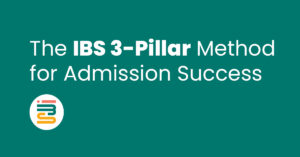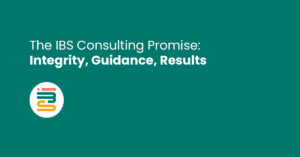Professional branding for job seekers is an important part of finding a job. It is how you present yourself to the world and show others what you can do. Just like businesses have logos and messages to attract customers, you also have a personal brand that helps you stand out to employers. According to a survey by LinkedIn, 70% of employers use social media to screen candidates. This shows how crucial it is to build a strong brand that reflects who you are and what you offer.
Having a good professional brand can make a big difference. It can help you get more job interviews and better job offers. For instance, candidates with strong personal brands can earn 10-15% more than those without one, as reported by a study from CareerBuilder. This means that your brand not only helps you get noticed but can also lead to better pay.
In this blog post, you will learn 10 must-know tips to build and improve your professional brand. By understanding your strengths and skills, crafting a clear message, and using social media wisely, you can make a strong impression. These tips will guide you in making your personal brand work for you as you seek your dream job.
What is Professional Branding
Professional branding as a job seeker is how you show who you are to the world, especially when looking for a job. It’s like having a special identity that highlights your skills, values, and what makes you unique. When you’re searching for a job, your professional brand helps employers see your strengths and understand why you would be a good addition to their team.
Your professional brand as a job seeker includes many parts. It covers your online presence, like your social media profiles and LinkedIn account, as well as your resume and cover letter. It also involves how you talk and interact with others, whether in person or through emails. Your branding should be clear and consistent, showing your personality and professional goals.
Why is Branding Important for Job Seekers
Having a strong personal brand can really help you in your job search. Here are some important reasons why branding matters:
- Visibility: A well-crafted brand helps you stand out in a sea of job applicants. When your brand is clear, it catches the attention of employers and makes them want to learn more about you.
- Credibility: If you show a steady and professional image, employers are more likely to trust you. They see you as a reliable candidate who takes their career seriously.
- Opportunities: A strong personal brand can open doors to new chances. This includes job offers, connections with other professionals, and even promotions within your field.
- First Impressions: Your brand helps create a strong first impression. Employers often decide quickly if they want to know more about you based on your online presence and how you present yourself.
- Networking: A solid brand makes it easier to connect with others in your industry. People are more likely to reach out if they recognize and respect your brand.
Statistics show that around 70% of employers check social media when looking at candidates. If your brand is strong and professional, you are more likely to impress them online and increase your chances of landing an interview.
10 Must-Know Professional Branding Tips
Creating a strong personal brand can be a game-changer when you’re looking to grow in your career. Each step you take to develop a professional brand as a job seeker helps you stand out, builds trust with potential employers, and shows that you’re serious about your career. Here are 10 easy-to-understand tips, focusing on the first three that are essential for getting you started on the right path.
Tip 1: Identify Your Unique Value Proposition
Curious about the benefits of elevating your career to the next level? Reach out to IBS Consulting and book your FREE consultation to discover more!
Book Your Free Consultation
Your unique value proposition (UVP) is what makes you stand out from everyone else. It’s the set of skills, experiences, and personal traits that make you valuable. To figure out what makes you special, ask yourself some important questions. Here’s a breakdown of how to identify and polish your UVP:
- What are my top skills? Write down a list of skills you are really good at. Think about what you enjoy doing and what others often praise you for. Are you good at problem-solving, or do you have a natural talent for leading a team? List these skills and reflect on why they are important in your field.
- What experiences have shaped me? Think about your career and personal life. Are there moments, jobs, or achievements that shaped who you are? Maybe you learned resilience from a tough job, or you grew your leadership skills by managing a big project. These experiences show your growth and help others see what you bring to the table.
- How can I make a positive impact in my next job? Reflect on how you can contribute in a new role. Maybe you’re great at improving teamwork, bringing fresh ideas, or finding ways to save time and resources. Think about how these qualities can benefit a future employer. By understanding your potential impact, you make it clear why you’re a great hire.
Take some time to think deeply about your answers. Don’t rush. The goal is to understand what makes you unique and why an employer would choose you over someone else. Write these insights down, and you’ll have a solid foundation for your personal brand.
Tip 2: Create a Professional Online Presence
Your online presence is like a digital business card. It gives others a quick look at who you are, what you’ve done, and how you can add value. Here’s how to create an online profile that leaves a good impression:
- Build a strong LinkedIn profile. LinkedIn is an important platform for professionals. Start by uploading a friendly, professional photo. This doesn’t have to be a formal studio shot, but make sure it looks polished. Write a headline that tells people what you do or are passionate about, and craft a summary that shares a bit about your work, skills, and achievements.
- Share a personal website or portfolio. Consider creating a simple website or online portfolio if your industry values visual work or projects. This can be as easy as using a free website builder. Include sections for your resume, achievements, examples of past projects, or any relevant skills. A well-done portfolio shows you’re serious and gives people more reasons to remember you.
- Keep your online presence professional and consistent. Check other profiles you have, like Twitter or Instagram, and make sure they match the professional image you want to project. Remove any posts that could give the wrong impression. Consistency across all platforms makes you look focused and reliable.
Remember, your online profile tells people what you care about and how you want to be seen. Keep it up-to-date, and treat it as a way to introduce yourself even when you’re not around.
Tip 3: Network Strategically
Networking for job seekers might seem intimidating, but it’s really about building connections with people who can support your career journey and whom you can help in return. Here are simple steps to make networking feel natural and helpful:
- Connect with people in your industry. LinkedIn is great for finding and connecting with professionals in your field. You can look up people who work in roles you aspire to or at companies you admire. Send a short, polite message to introduce yourself when you request to connect. A friendly message makes you more memorable and opens the door for future interactions.
- Attend events and industry gatherings. Attend events or webinars where you can meet others in your field. Industry events allow you to meet professionals face-to-face (or online). You get a chance to learn, ask questions, and introduce yourself. When you attend, focus on listening and showing interest in others; this makes people more open to staying connected.
- Offer help and share your knowledge. Networking as a job seeker isn’t just about getting a job, it’s about building real, supportive relationships. You can start by sharing an article, offering a helpful tip, or even introducing two people who could benefit from knowing each other. Small gestures go a long way and show you’re interested in a real connection, not just what you can gain.
Tip 4: Use Social Media Wisely
Social media is powerful, it can either boost your personal brand or damage it. Keep your social media accounts professional and relevant to your career goals. Here are a few key ways to make the most of social media:
- Keep it clean: Avoid posting content that could be seen as offensive or unprofessional. This includes posts or comments that might not align with the image you want to project.
- Share valuable content: Post articles, insights, or news that match your industry or interests. This shows you’re up-to-date and knowledgeable.
- Engage positively: Support others by liking, commenting, and sharing their posts. Show appreciation for the work of others in your field. Engaging positively creates connections and adds to your positive image.
- Join relevant groups: Facebook, LinkedIn, or even Twitter have groups and communities where professionals for job seekers in your field discuss trends, challenges, and job opportunities. Being active in these spaces can keep you connected.
- Post about your achievements: Don’t hesitate to share your milestones, whether it’s completing a course, achieving a goal, or getting a new certification. It shows you’re progressing in your field.
- Stay consistent: Make sure your profile photos, bio, and content match across all your accounts. This consistency helps others remember you and see you as reliable.
With these small changes, your social media can become a place where others see your professionalism, interests, and commitment to your career.
Tip 5: Craft a Compelling Resume and Cover Letter
Your resume and cover letter are more than just application materials; they’re often the first impression you make on potential employers. Here’s how to make them stand out:
- Showcase your unique strengths: Highlight the skills, experience, and qualities that make you a valuable candidate. Use specific words that reflect your experience, like “managed,” “created,” or “improved,” to make your impact clear.
- Tailor to each job: Avoid sending the same resume for every job. Look at each job description and adjust your resume and cover letter to match the specific skills and qualifications the employer is seeking.
- Highlight achievements: Rather than listing duties, talk about accomplishments. If you increased sales, completed a project, or led a successful team, let that shine.
- Use a clear, simple layout: Avoid complicated designs or fancy fonts. Choose a layout that’s easy to read and makes your information accessible.
- Add keywords: Many companies use software to scan resumes for specific words. Include keywords from the job description to improve your chances of passing these filters.
- Be concise: Keep it to one page if you’re early in your career, or two if you have more experience. A concise, to-the-point resume writing can make a stronger impact.
- Include contact information: Ensure your email, phone number, and LinkedIn profile link are up-to-date and easy to find.
When done right, your resume writing tip and cover letter become tools that effectively communicate your value, making you memorable to hiring managers.
Interested in learning more about the benefits of professional development? Call IBS Consulting to schedule a FREE consultation right away!
Book Your Free Consultation
Tip 6: Build a Portfolio of Work
A portfolio is a great way to showcase what you’ve done and what you’re capable of. It’s a visual proof of your skills and achievements that lets potential employers see the quality of your work for themselves. Here’s how to create a portfolio that stands out:
- Choose your best work: Only include pieces or projects that show your strongest skills. Quality over quantity is key here.
- Organize it well: Group your work by type or skill, so potential employers can easily find what they’re looking for.
- Use visuals: A clean, simple layout with high-quality images or documents can make a big difference. Consider using an online portfolio platform like Behance or one personal branding tip that’s worthwhile; website for easy access.
- Add descriptions: Briefly explain each piece of work. Talk about your role in the project, any challenges you faced, and what you achieved.
- Show variety: If possible, include a range of projects that show different skills or aspects of your field. This shows you’re versatile.
- Include any awards or recognition: If any of your work has won awards or was recognized by a previous employer, be sure to mention it.
- Link to your portfolio in your resume: Make sure potential employers can easily access your portfolio by including the link in your resume and LinkedIn profile.
A strong portfolio can make you stand out in a way that’s hard to achieve with just a resume, allowing you to show what you can do in a practical, real-world context.
Tip 7: Seek Out Professional Development Opportunities
Staying updated with new skills and knowledge is a great way to show employers that you’re dedicated to your career growth. Here are some ways to continue learning:
- Take online courses: Websites like Coursera, Udemy, and LinkedIn Learning offer courses on almost any skill you can think of.
- Attend workshops and seminars: Many are now available online, so it’s easier than ever to fit them into your schedule.
- Earn certifications: Getting certified in a particular skill can make your resume stand out and show that you have expertise in certain areas.
- Read industry publications: Blogs, journals, or even newsletters in your field can keep you informed of trends and advancements.
- Join a professional association: Many fields have organizations where members can learn from each other, attend events, and gain access to resources.
- Network with peers: Talking to others in your industry can introduce you to new ideas, tools, or methods that can help you grow professionally.
- Stay curious: The most successful professionals are always looking for ways to improve.
Employers will notice your willingness to learn, and it can set you apart from other candidates who may not be as committed to growth.
Tip 8: Volunteer and Get Involved
Volunteering is a powerful way to build your skills, network, and show that you care about more than just a paycheck. Here’s how volunteering can help build your brand:
- Gain experience: Volunteering in your field can give you hands-on experience that makes your resume stronger.
- Expand your network: Working with others in a volunteer setting can introduce you to new contacts who might help you down the road.
- Learn new skills: You can develop soft skills like leadership, teamwork, and problem-solving, which are highly valued by employers.
- Show your commitment to causes: Volunteering demonstrates that you’re dedicated, caring, and willing to go the extra mile.
- Fill gaps in your resume: If you’re between jobs, volunteering can be a productive way to keep building your skills and experience.
- Make a positive impact: Volunteering can be deeply rewarding, and employers like to see candidates who make a difference in their community.
Look for volunteer roles that are meaningful to you or that align with your career goals, and you’ll find that they can add value to both your life and career.
Tip 9: Solicit Feedback and Testimonials
Getting feedback from people who have worked with you can boost your credibility and provide evidence of your skills. Here’s how to make the most of feedback and testimonials:
- Ask colleagues or supervisors: Reach out to people you’ve worked closely with who can speak to your skills and character.
- Request LinkedIn recommendations: These are visible on your LinkedIn profile and can make a strong impression on recruiters or employers.
- Use testimonials on your portfolio: If you have a website or portfolio, include a section with quotes from people who’ve praised your work.
- Stay open to constructive feedback: Not all feedback is positive, but constructive criticism can help you grow and improve.
- Celebrate your strengths: Don’t be afraid to highlight the positive things others say about you. It builds trust and helps potential employers see your best qualities.
- Update testimonials regularly: As you grow and develop, get fresh feedback that reflects your most recent work or achievements.
Feedback from others can act as social proof, which can be highly persuasive to employers who want to know what it’s like to work with you.
Tip 10: Be Authentic
Being true to yourself is one of the best ways to stand out. Here’s how authenticity can strengthen your personal brand:
- Showcase your values: Don’t hide the things that are important to you, as they help define who you are.
- Be honest about your strengths and weaknesses: Authenticity isn’t about being perfect; it’s about being real.
- Build genuine connections: People can tell when you’re being genuine. Authenticity helps others feel more connected to you.
- Stay consistent: Act the same way online as you would in person, so people know the real you.
- Focus on your passion: People who are authentic are often those who follow their passions and share them with others.
When you’re authentic, you’re not only more memorable, but you also foster trust. And trust is one of the most valuable things in any career.
>Contact us
Common Mistakes to Avoid in Professional Branding
When building your personal brand, it’s easy to make mistakes. Here are a few common pitfalls to watch out for:
- Inconsistency: Ensure your online profiles, resumes, and cover letters convey a consistent message. Discrepancies can confuse employers and hurt your brand.
- Neglecting Social Media: Don’t ignore your social media presence. Keep your profiles professional and active.
- Being Overly Salesy: While you want to promote yourself, don’t come off as too pushy. Focus on genuine connections and conversations.
- Ignoring Your Online Reputation: Regularly Google yourself to see what comes up. Address any negative content and work to build a positive online image.
Conclusion
Professional branding for job seekers is one vital part of your job search strategy. It helps you stand out, build credibility, and create opportunities. By implementing these ten branding tips, you can create a strong personal brand that will make you more appealing to employers. Start today, take the first step towards building a standout brand that reflects your unique value!
Have you tried any of these branding tips? Share your experiences or any additional tips you have in the comments below. Your insights could help other job seekers on their journey!
FAQs
What is personal branding?
Personal branding is how you present yourself and your skills to the world, especially to potential employers. It’s about showcasing your unique identity and value.
Why is branding important for job seekers?
A strong personal brand can help you stand out, build trust with employers, and create opportunities in your job search strategy.
How can I improve my online presence?
To improve your online presence, create a professional LinkedIn profile, consider a personal website, and curate your social media accounts to reflect your professional image.
What should I include in my portfolio?
Include samples of your work, achievements, and any relevant projects that showcase your skills and expertise.
How do I find my unique value proposition?
Reflect on your skills, experiences, and what makes you special. Ask yourself what you can offer that others may not, and use that to define your unique value proposition.
By following these tips, you’ll be well on your way to creating a strong personal brand that helps you succeed in your job search.





